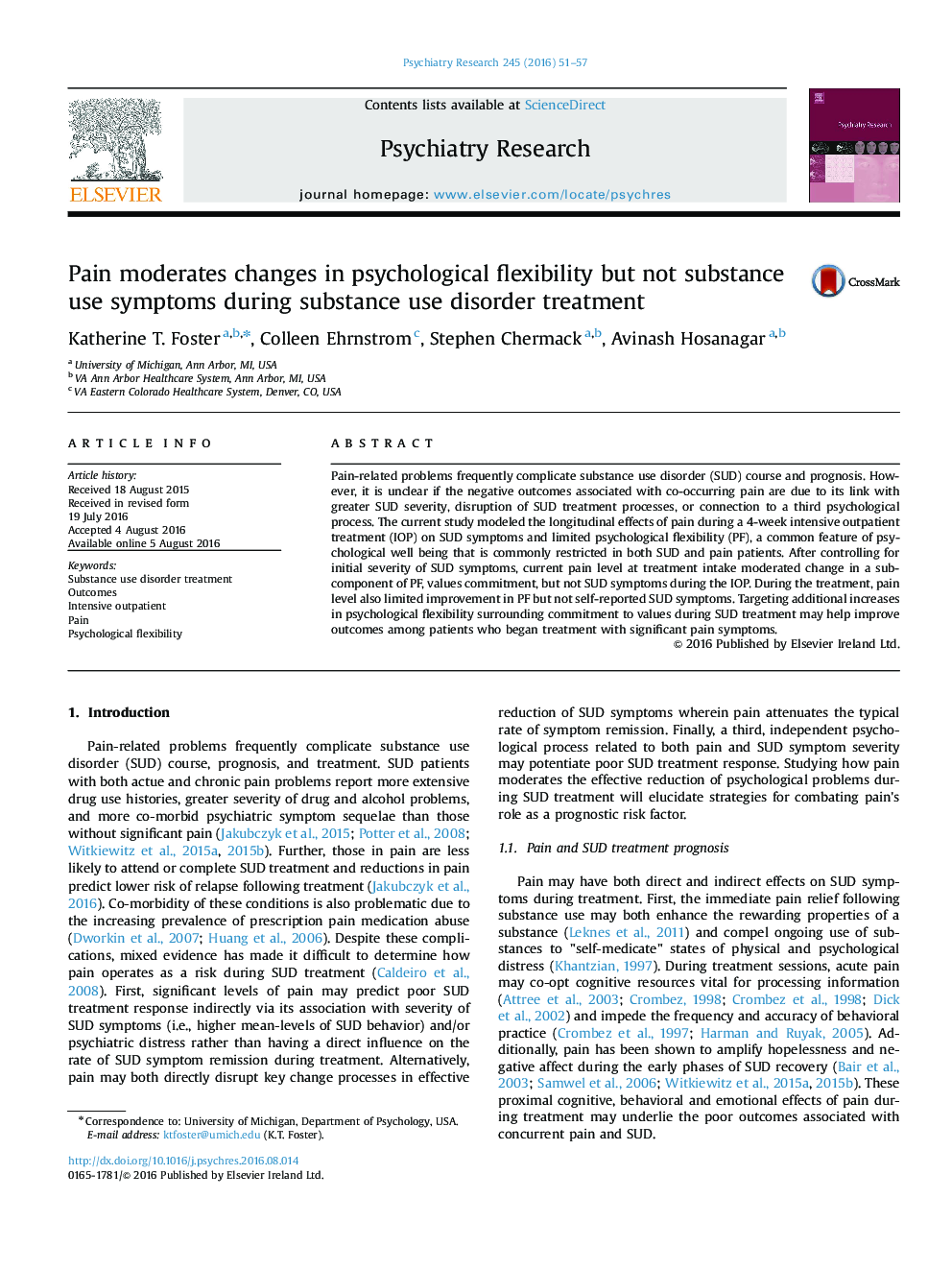| Article ID | Journal | Published Year | Pages | File Type |
|---|---|---|---|---|
| 6812284 | Psychiatry Research | 2016 | 7 Pages |
Abstract
Pain-related problems frequently complicate substance use disorder (SUD) course and prognosis. However, it is unclear if the negative outcomes associated with co-occurring pain are due to its link with greater SUD severity, disruption of SUD treatment processes, or connection to a third psychological process. The current study modeled the longitudinal effects of pain during a 4-week intensive outpatient treatment (IOP) on SUD symptoms and limited psychological flexibility (PF), a common feature of psychological well being that is commonly restricted in both SUD and pain patients. After controlling for initial severity of SUD symptoms, current pain level at treatment intake moderated change in a sub-component of PF, values commitment, but not SUD symptoms during the IOP. During the treatment, pain level also limited improvement in PF but not self-reported SUD symptoms. Targeting additional increases in psychological flexibility surrounding commitment to values during SUD treatment may help improve outcomes among patients who began treatment with significant pain symptoms.
Related Topics
Life Sciences
Neuroscience
Biological Psychiatry
Authors
Katherine T. Foster, Colleen Ehrnstrom, Stephen Chermack, Avinash Hosanagar,
